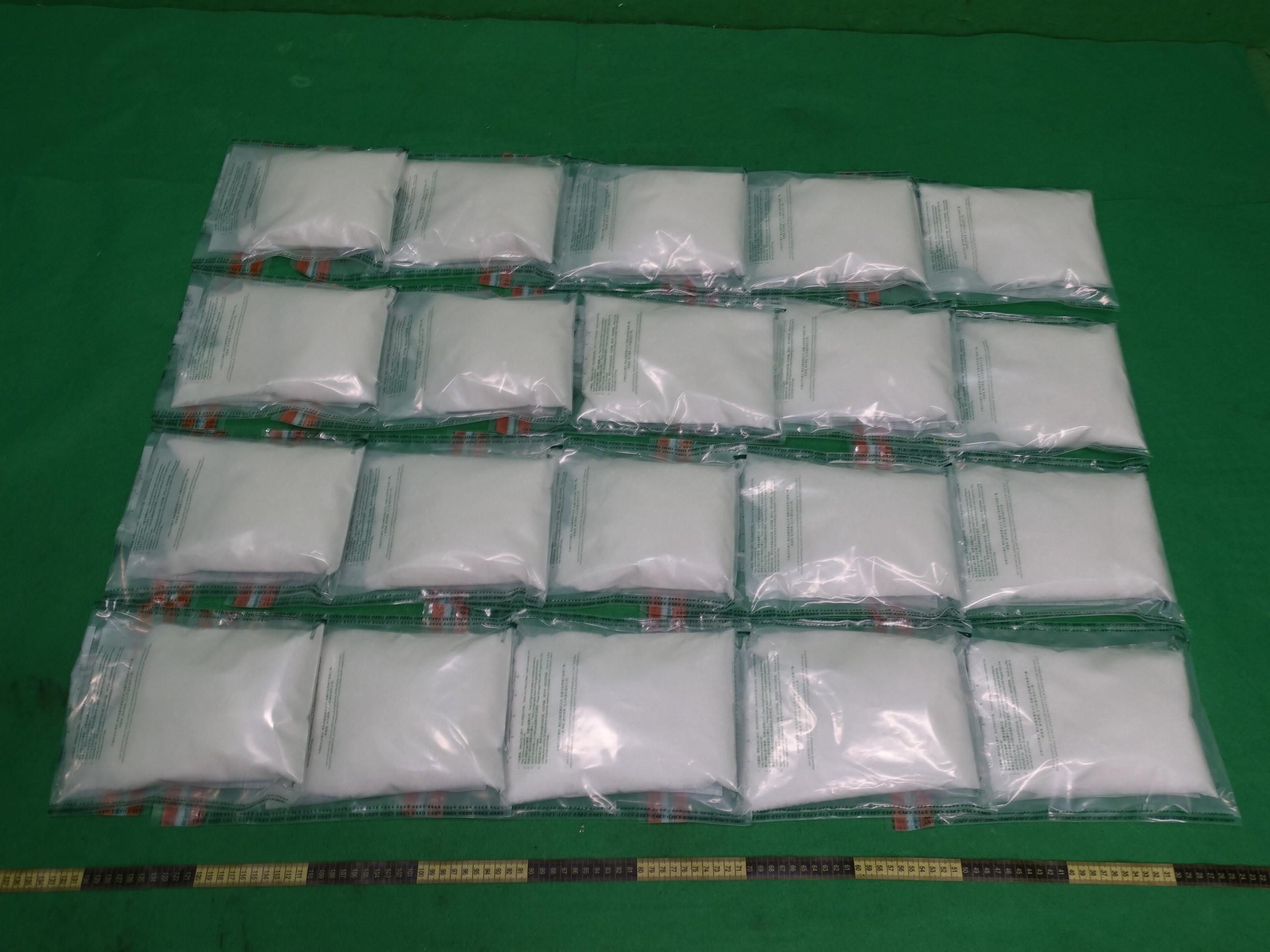Police will implement special traffic arrangements in Hong Kong Island North, Kowloon East and Tseung Kwan O to facilitate the Hong Kong Streetathon 2024 this Sunday (December 8).
Road closure and traffic diversions
———————————–
The following road closure and traffic diversion arrangements will be implemented by phases on December 8, except for vehicles with permit:
Phase 1A (from 1am to 8.30am)
The following roads will be closed:
– Eastbound Yiu Sing Street between Man Yiu Street and Lung Wo Road;
– Eastbound Lung Wo Road between Man Yiu Street and Expo Drive East; and
– Eastbound Expo Drive between Lung Wo Road and Expo Drive East.
The following traffic diversion will be implemented:
Traffic along Man Po Street, Man Cheung Street or Man Yiu Street heading for Admiralty and Wan Chai North will be diverted via Connaught Place, Connaught Road Central and Harcourt Road.
Phase 1B (from 1am to 9am)
The following roads will be closed:
– Eastbound Central-Wan Chai Bypass Tunnel;
– Eastbound Island Eastern Corridor between Victoria Park Road and Taikoo Wan Road;
– Eastern Harbour Crossing (Kowloon bound tube); and
– The slip roads leading from Hing Fat Street, Man Hong Street and Eastern Harbour Crossing to eastbound Island Eastern Corridor.
The following traffic diversions will be implemented:
– Traffic along Connaught Road Central flyover heading for Wan Chai North and North Point will be diverted via Man Po Street, Man Yiu Street, Connaught Place, Connaught Road Central, Harcourt Road, Gloucester Road and Victoria Park Road;
– Traffic along Man Kat Street heading for Wan Chai North and North Point will be diverted via Connaught Road Central, Harcourt Road, Gloucester Road and Victoria Park Road;
– After the reopening of eastbound Lung Wo Road, traffic along eastbound Lung Wo Road heading for North Point will be diverted via Hung Hing Road, Hung Hing Road flyover and Victoria Park Road;
– Traffic along Victoria Park Road or Hing Fat Street via Island Eastern Corridor heading for Chai Wan will be diverted via Gordon Road, Electric Road, Java Road, King's Road, Kornhill Road, King’s Road, Shau Kei Wan Road, Tai Hong Street, Tai On Street, Oi Kan Road, Oi Yin Street, Oi Lai Street and Tung Hei Road towards eastbound Island Eastern Corridor;
– Traffic along Victoria Park Road or Hing Fat Street via Island Eastern Corridor heading for Eastern Harbour Crossing (Kowloon bound) will be diverted via Gordon Road, Electric Road, Java Road, King's Road, Kornhill Road flyover and eastbound Hong On Street towards westbound Island Eastern Corridor;
– Traffic along Man Hong Street via Island Eastern Corridor heading for Chai Wan will be diverted via Java Road, King's Road, Kornhill Road, King’s Road, Shau Kei Wan Road, Tai Hong Street, Tai On Street, Oi Kan Road, Oi Yin Street, Oi Lai Street and Tung Hei Road towards eastbound Island Eastern Corridor;
– Traffic along Man Hong Street via Island Eastern Corridor heading for Eastern Harbour Crossing (Kowloon bound) will be diverted via Java Road, King's Road, Kornhill Road flyover and eastbound Hong On Street towards westbound Island Eastern Corridor; and
– Traffic along Eastern Harbour Crossing heading for Eastern District will be diverted via westbound Island Eastern Corridor, Man Hong Street, Java Road and King’s Road.
Phase 2A (from 1.30am to 12.15pm)
The following roads will be closed:
– Westbound Kai Fuk Road between Kwun Tong Road flyover and Kai Tak Tunnel;
– All slip roads connecting westbound Kai Fuk Road;
– Westbound Kai Tak Tunnel;
– Westbound East Kowloon Corridor between Kai Tak Tunnel and San Shan Road; and
– Eastbound San Shan Road between East Kowloon Corridor and To Kwa Wan Road.
The following traffic diversions will be implemented:
– Traffic along westbound Kwun Tong Road heading for Kai Cheung Road will be diverted via Lai Yip Street and westbound Wai Yip Street;
– Traffic along westbound Kwun Tong Road or westbound Wai Yip Street heading for To Kwa Wan or Tsim Sha Tsui will be diverted via Kwun Tong Road, Prince Edward Road East and Ma Tau Chung Road;
– Traffic along westbound Wai Yip Street via Kai Fuk Road heading for eastbound Kai Cheung Road will be diverted via westbound Sheung Yuet Road, northbound Wang Kwong Road and eastbound Kai Cheung Road;
– Traffic along eastbound Wai Yip Street via Kai Fuk Road heading for eastbound Kai Cheung Road will be diverted via How Ming Street, westbound Hung To Road, southbound Lai Yip Street, westbound Wai Yip Street, westbound Sheung Yuet Road, northbound Wang Kwong Road and eastbound Kai Cheung Road;
– Traffic along eastbound Wai Yip Street heading for To Kwa Wan or Tsim Sha Tsui will be diverted via northbound Lai Yip Street, Kwun Tong Road, Prince Edward Road East and Ma Tau Chung Road;
– Traffic along westbound Kwun Tong Bypass heading for Kai Cheung Road will be diverted via Wang Chiu Road, westbound Sheung Yuet Road and northbound Wang Kwong Road;
– Traffic along westbound Kwun Tong Bypass heading for To Kwa Wan or Tsim Sha Tsui will be diverted via Prince Edward Road East and Ma Tau Chung Road;
– Traffic along westbound Kai Cheung Road heading for To Kwa Wan will be diverted via Kai Fuk Road, northbound Wang Kwong Road, Kai Shun Road, Kai Shing Street and westbound Shing Kai Road; and
– Traffic along westbound Kai Cheung Road heading for Tsim Sha Tsui will be diverted via Kai Fuk Road, northbound Wang Kwong Road, eastbound Kai Cheung Road, northbound Wai Yip Street, Kwun Tong Road, Prince Edward Road East, Ma Tau Chung Road, Ma Tau Wai Road and Chatham Road North.
Phase 2B (from 1.30am to 12.30pm)
The following roads will be closed:
– Eastbound Kwun Tong Bypass between the slip road of Kwun Tong Bypass connecting westbound Prince Edward Road East and the slip road of northbound Wai Fat Road connecting Kwun Tong Bypass;
– The slip road leading from eastbound Prince Edward Road East to westbound Kwun Tong Bypass; and
– The slip roads leading from eastbound Prince Edward Road East, eastbound Kai Fuk Road and southbound Wang Chiu Road to eastbound Kwun Tong Bypass.
The following traffic diversions will be implemented:
– Traffic along Tate's Cairn Tunnel heading for Kwun Tong and Tseung Kwan O will be diverted via eastbound Prince Edward Road East, Kwun Tong Road, Wai Yip Street and Wai Fat Road;
– Traffic along eastbound Prince Edward Road East heading for Tate's Cairn Tunnel will be diverted via eastbound Prince Edward Road East and westbound Lung Cheung Road;
– Traffic along eastbound Prince Edward Road East heading for Kwun Tong and Tseung Kwan O will be diverted via Kwun Tong Road, Wai Yip Street and Wai Fat Road;
– Traffic along eastbound Kai Fuk Road heading for Kwun Tong and Tseung Kwan O will be diverted via Kai Fuk Road flyover, Wai Yip Street and Wai Fat Road; and
– Traffic along southbound Wang Chiu Road heading for Kwun Tong and Tseung Kwan O will be diverted via eastbound Sheung Yee Road, Sheung Yee Road flyover, Ngau Tau Kok Road, Elegance Road, Kwun Tong Road and Lei Yue Mun Road.
Phase 2C (from 1.30am to 1pm)
The following roads will be closed:
– Cheung Yip Street between Sheung Yee Road and Hoi Bun Road;
– Tsui Hing Street;
– Hoi Bun Road between Kai Hing Road and Tsun Yip Street;
– Eastbound Hoi Bun Road between Cheung Yip Street and Kai Hing Road;
– Hung Yip Street;
– Shun Yip Street;
– Lai Yip Street between Hoi Bun Road and Wai Yip Street; and
– How Ming Street between Hoi Bun Road and Wai Yip Street
The following traffic diversions will be implemented:
– Traffic along southbound Wang Chiu Road heading for Kwun Tong will be diverted via Sheung Yee Road, Sheung Yee Road flyover and Ngau Tau Kok Road;
– Traffic along northbound Cheung Yip Street or Kai Hing Road heading for Kwun Tong will be diverted via Wang Chiu Road, Sheung Yee Road, Sheung Yee Road flyover and Ngau Tau Kok Road; and
– Traffic along Kei Yip Street or southbound Lai Yip Street heading for Kowloon Bay will be diverted via westbound Wai Yip Street and Sheung Yee Road.
Phase 3A (from 2.30am to 10.15am)
The following roads will be closed:
– Westbound Wan O Road between Tseung Lam Highway and Wan Po Road;
– Westbound Tseung Lam Highway between Wan O Road and Lam Tin Interchange; and
– Southbound Tseung Lam Highway between Po Yap Road and westbound Tseung Lam Highway.
The following traffic diversions will be implemented:
– Traffic from LOHAS Park or northbound Wan Po Road heading for Kowloon will be diverted via northbound Wan Po Road, Tseung Kwan O Tunnel Road and Tseung Kwan O Tunnel;
– Traffic along southbound Wan Po Road heading for Kowloon will be diverted via southbound Wan Po Road, eastbound Chun Yat Street, southbound Chun Sing Street, roundabout, northbound Chun Sing Street, westbound Chun Yat Street, northbound Wan Po Road, Tseung Kwan O Tunnel Road and Tseung Kwan O Tunnel;
– Traffic along westbound Po Yap Road or eastbound Chui Ling Road heading for Kowloon will be diverted via northbound Po Shun Road, Tseung Kwan O Tunnel Road and Tseung Kwan O Tunnel;
– Traffic along southbound Po Shun Road heading for Kowloon will be diverted via westbound Chui Ling Road, northbound King Ling Road, northbound Po Shun Road, Tseung Kwan O Tunnel Road and Tseung Kwan O Tunnel;
– Traffic along westbound Po Yap Road heading for LOHAS Park will be diverted via westbound Chui Ling Road, northbound King Ling Road, eastbound Tong Ming Street, southbound Po Hong Road, eastbound Po Yap Road and southbound Wan Po Road; and
– Traffic along eastbound Chui Ling Road or southbound Po Shun Road heading for LOHAS Park will be diverted via eastbound Po Yap Road and southbound Wan Po Road.
Phase 3B (from 2.30am to noon)
The following roads will be closed:
– Eastbound Tseung Lam Highway between Lam Tin Interchange and Wan O Road;
– The slip roads leading from Cha Kwo Ling Road and Eastern Harbour Crossing (Kowloon bound) to eastbound Tseung Lam Highway;
– Northbound Tseung Lam Highway between eastbound Tseung Lam Highway and Po Yap Road; and
– Northbound Chui Shin Street between the ingress/egress of the open-air carpark of Chui Shin Street and Chui Ling Road.
The following traffic diversions will be implemented:
– Northbound Chui Shin Street east of the ingress/egress of the open-air car park of Chui Shin Street will be converted into two-way traffic;
– Traffic from the open-air car park of Chui Shin Street heading for Chui Ling Road will be diverted via southbound Chiu Shin Street;
– Traffic along westbound Cha Kwo Ling Road heading for Tseung Kwan O will be diverted via Yau Tong Road, westbound Lei Yue Mun Road, Tseung Kwan O Road, Tseung Kwan O Tunnel and Tseung Kwan O Tunnel Road;
– Traffic along Eastern Harbour Crossing (Kowloon bound) heading for Tseung Kwan O will be diverted via westbound Lei Yue Mun Road, Tseung Kwan O Road, Tseung Kwan O Tunnel and Tseung Kwan O Tunnel Road;
– Traffic along eastbound Chui Ling Road or southbound Po Shun Road heading for LOHAS Park will be diverted via eastbound Po Yap Road and Wan Po Road; and
– Traffic along westbound Po Yap Road heading for LOHAS Park will be diverted via westbound Chui Ling Road, northbound King Ling Road, eastbound Tong Ming Street, southbound Po Hong Road, eastbound Po Yap Road and southbound Wan Po Road.
Phase 3C (from 2.30am to 12.30pm)
The following roads will be closed:
Cha Kwo Ling Road between Wai Yip Street and Lam Tin Interchange.
The following traffic diversions will be implemented:
– Traffic along eastbound Wai Yip Street heading for Yau Tong or Tseung Kwan O will be diverted via northbound Wai Fat Road and Kwun Tong Bypass;
– Traffic along southbound Cha Kwo Ling Road heading for Yau Tong or Tseung Kwan O will be diverted via westbound Wai Yip Street, northbound Wai Fat Road and Kwun Tong Bypass;
– Traffic along westbound Cha Kwo Ling Road heading for Kwun Tong or Laguna City will be diverted via Yau Tong Road and westbound Lei Yue Mun Road; and
– After reopening of westbound Tseung Lam Highway, traffic along Tseung Lam Highway heading for Kwun Tong or Laguna City will be diverted via eastbound Cha Kwo Ling Road, Yau Tong Road and westbound Lei Yue Mun Road.
Vehicles exceeding 10 metres in length cannot enter eastbound Wai Yip Street south of Cha Kwo Ling Road.
Phase 4 (from 3am to 12.15pm)
The following roads will be closed:
– Southbound East Kowloon Corridor between San Shan Road and Chatham Road North; and
– Westbound San Shan Road between To Kwa Wan Road and East Kowloon Corridor.
The following traffic diversions will be implemented:
– Traffic along southbound To Kwa Wan Road or westbound San Ma Tau Street heading for Chatham Road North will be diverted via To Kwa Wan Road, Ma Tau Wai Road, Gillies Avenue North and Hok Yuen Street; and
– Traffic along northbound To Kwa Wan Road heading for Chatham Road North must turn right and make a U-turn at San Ma Tau Street, via southbound To Kwa Wan Road, Ma Tau Wai Road, Gillies Avenue North and Hok Yuen Street towards Chatham Road North.
Phase 5 (from 4.30am to 11.45am)
The following roads will be closed:
The slip road leading from southbound Wai Fat Road and Wai Yip Street to Kwun Tong Bypass.
The following traffic diversions will be implemented:
– Traffic along southbound Wai Fat Road or westbound Wai Yip Street heading for Kowloon Bay and Sha Tin will be diverted via westbound Wai Yip Street; and
– Traffic along eastbound Wai Yip Street heading for Kowloon Bay and Sha Tin will be diverted via Wai Fat Road, Cha Kwo Ling Road, Lei Yue Mun Road and Kwun Tong Road.
Suspension of parking spaces
—————————
The following parking spaces will be suspended:
– 85 metered parking spaces at Hing Fat Street Public Car Park (metered parking spaces No.1604 to 1629 and 1641 to 1657), motorcycle parking spaces and disabled parking spaces will be suspended from 8pm on December 7 to 8am on December 8;
– Three metered parking spaces on Expo Drive (metered parking spaces No. 3794 and 3795) will be suspended from 8pm on December 7 to 8.30am on December 8; and
– 42 metered parking spaces on Hoi Bun Road (metered parking spaces No. 12461, 12462, 12701 to 12706 and 12707 to 12720), truck parking spaces, motorcycle parking spaces and disabled parking spaces will be suspended from 8pm on December 7 to 1pm on December 8.
All vehicles parked illegally during the implementation of the above special traffic arrangements will be towed away without prior warning.
Actual implementation of the traffic arrangements will be made depending on traffic and crowd conditions in the area. Members of the public are advised to exercise tolerance and patience and take heed of instructions of the Police on site.







